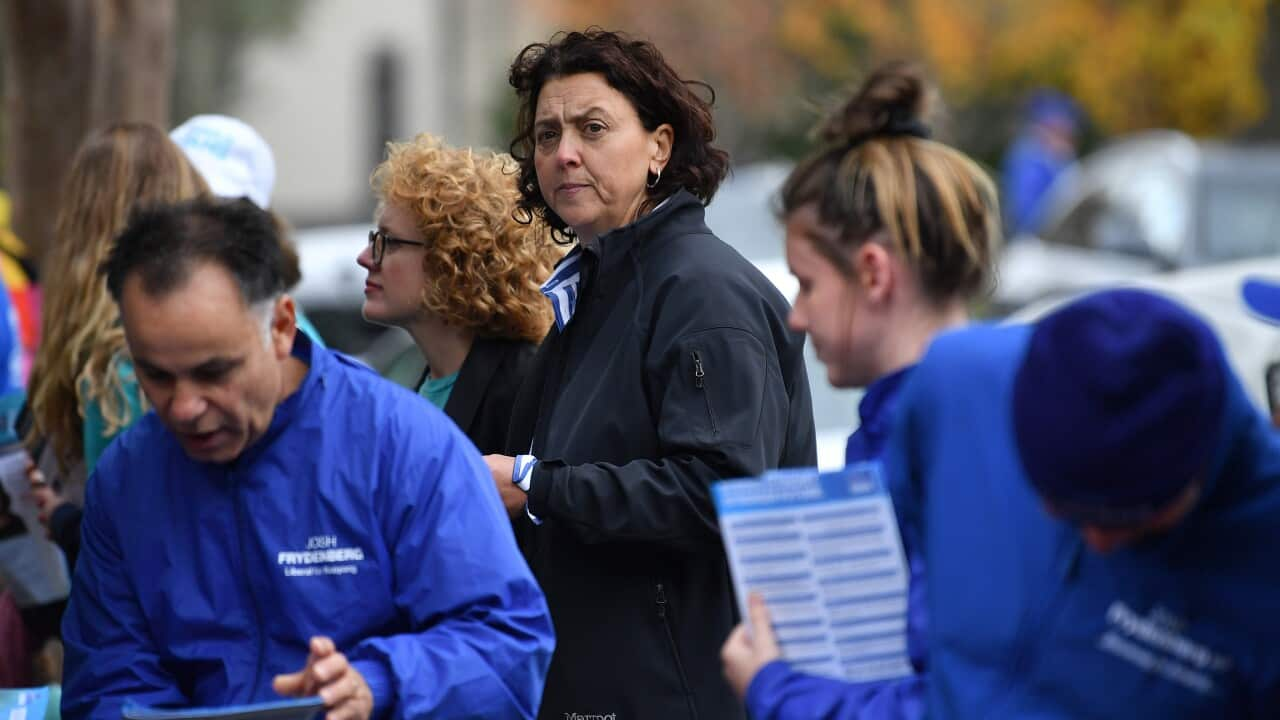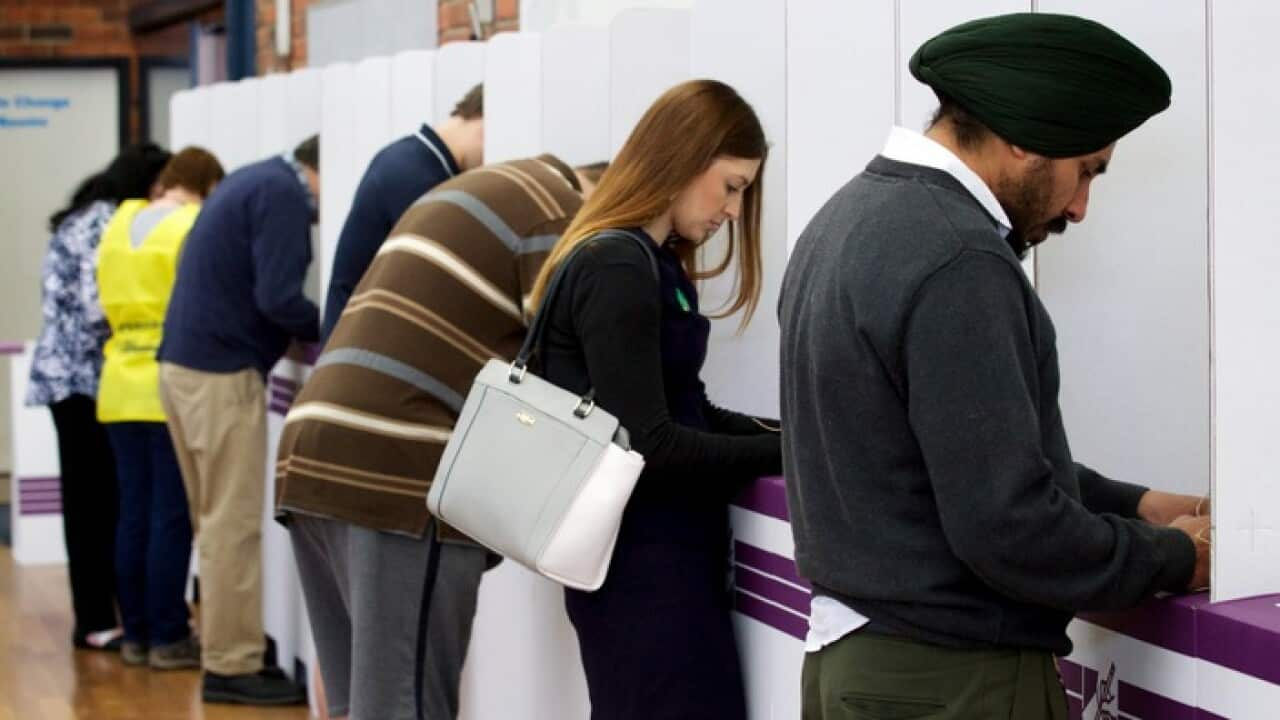As the federal election campaign enters its final days, some Australians might be wondering how to cast their vote if they contract COVID-19 and can't attend a polling booth on Saturday.
This year, legislation was passed to allow for COVID-affected voters to cast a telephone vote. Phone voting is also available to those who are blind or have low vision, or who are working in Antarctica.
But the time parameters for who was eligible to vote by phone, over a postal ballot, sparked
Melbourne independent candidate for Kooyong, Monique Ryan, said she would lodge a challenge in the Federal Court against the regulation which the Australian Electorate Commission (AEC) conceded may prevent some people from voting.
On Friday, the Australian Electoral Commission (AEC) recommended changes expanding the service, which were accepted by the government.
Who's eligible for COVID-19 phone voting?
As of Friday, the government made changes that will make telephone voting available to any Australians who tested positive to COVID-19 from 6pm last Friday 13 May and do not have access to postal voting.
Previously, phone voting was only available for voters who tested positive to the virus after 6pm on Tuesday 17 May. Those who tested positive prior to that day and had not cast an early vote were required .
Postal vote applications were open until 6pm on Wednesday.
"People who did not apply for a postal vote before the Wednesday 6pm application deadline, haven't voted yet, tested positive before 6pm Tuesday, and are in isolation through to election day, may not be able to vote," the AEC said on Twitter on Thursday night.
The service was expanded on Friday.
Special Services Minister Ben Morton said on Friday the government had "made changes based on recommendations from the electoral commissioner that will make telephone voting available to people who have received a COVID positive result from 6pm last Friday".
“This is an issue that I have been raising with the election commissioner in the last 48
hours.”
“The commission is rightly looking at the capacity of the system.”
The AEC says people must register for a telephone vote by 4pm on election day (21 May). Telephone voting lines will remain open until 6pm that day.
How will it work?
AEC spokesperson Evan Ekin-Smyth earlier told SBS News the commission aims to provide information directly to those COVID-affected voters who require phone voting through health authorities.
"People might receive a text message or an email if they've gone and registered their positive COVID-19 test with health authorities. And they'll provide any information they need," he said.
Telephone voting is a two-step process: online registration, and a call to vote.
If eligible, there are a few steps for people casting their vote over the phone to follow.
Voters must register on the AEC website, providing personal details and evidence of being a coronavirus-affected voter.
They must declare they have not already voted, and have been required to isolate or quarantine due to COVID-19. Voters will choose a PIN and be provided with a registration number.
The voter must then call the call centre when telephone voting becomes available for them.
The call centre operator will undertake security checks and will mark the ballot paper in accordance with the voter's instructions.
The ballot paper is placed in an envelope marked with the voter's electorate, and the time and date on which the vote was cast.
The voter's name will not be put on the envelope or given to the phone operator, ensuring a secret ballot.
The envelopes are sorted and forwarded to the appropriate division to be counted four days after polling day.
Results of telephone votes are published in a separate vote collection point, effectively counting as their own polling place.
Who else can access telephone voting?
Voters who are blind or have low vision can also cast their vote through the AEC's telephone service.
Mr Ekin-Smyth said the dual-registration service is very similar, with voters having access to candidate lists for the House of Representatives and the Senate in a range of formats prior to the call.
"We'll have a priority queue for Australians who are blind or have low vision to make sure that they have that level of convenience to be able to cast their vote in a very swift manner," he said.
More information will be available on the AEC website.
The service will also be available for Australians who are working in Antarctica or are on a ship that is in transit to or from the Antarctic, this election.
How will the service be supervised?
Like all forms of voting, Mr Ekin-Smyth said telephone voting will be supervised and open to party and candidate-appointed "scrutineers" to monitor the process.
"This is a really important transparency measure that we have for all forms of voting, so those things will be built into the service as well," he said.
AEC Commissioner Tom Rogers urged people using the service to be prepared when they called, and to expect days due to staff would in some cases be "effectively reading out the ballot paper".
"If people need the entire ballot paper read out, there will be queues, but it will ensure everyone can vote," he told the ABC on Friday.
- With AAP












